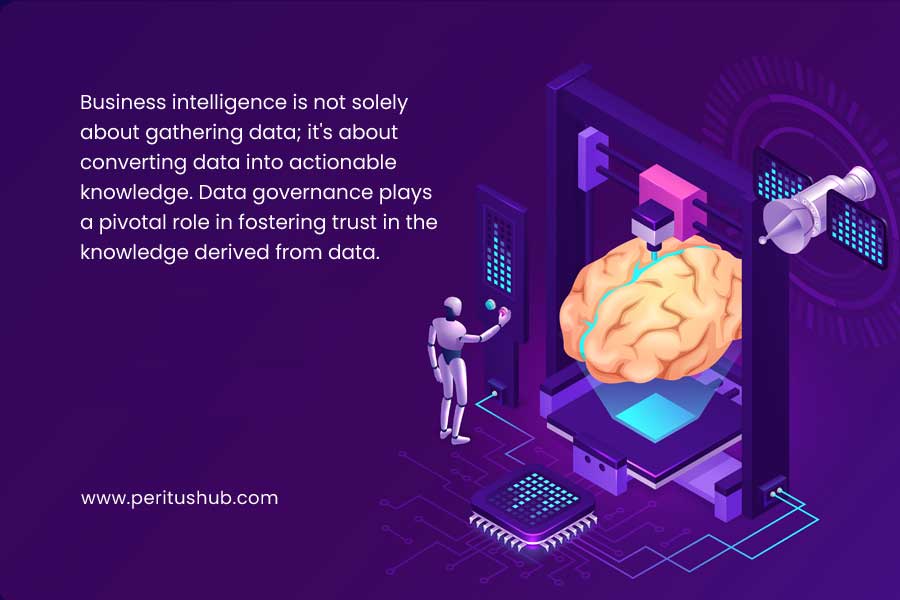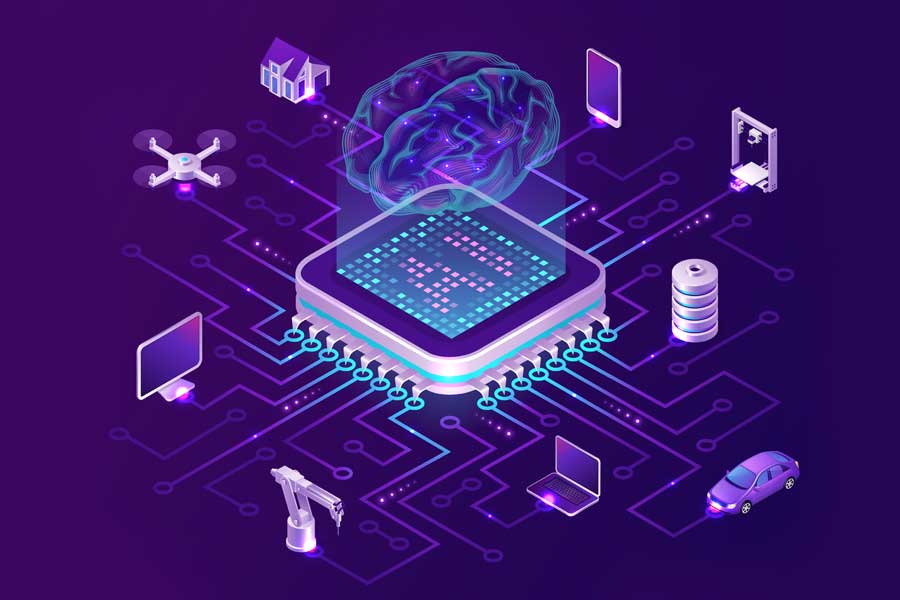Navigating the Cloud Storm | Data Governance in the Age of AI
The corporate landscape has undergone a profound transformation in recent years with the widespread adoption of cloud technology. Simultaneously, the proliferation of data and the advent of artificial intelligence (AI) have ushered in a new era of possibilities.
Surprisingly, a staggering 90% of organizations are now permitting their employees to harness the power of generative AI. However, this technological shift isn’t without its challenges.
A recent survey revealed that a significant 66% of organizations are grappling with crucial data governance concerns, which they believe are essential to address before fully embracing generative AI.
This blog delves into the intricate interplay between data governance, cloud computing, and AI, shedding light on the challenges and opportunities this digital convergence presents to businesses worldwide.

The Inexorable Surge of Data
Driven by cost-efficiency, scalability, and agility, organizations are fervently embracing cloud strategies. While this shift presents numerous benefits, it also ushers in complexities related to data governance. Migrating data to the cloud necessitates meticulous planning to uphold data integrity and compliance.
Cloud adoption is now a necessity, and effective data governance should be an integral part of any cloud migration strategy to ensure a seamless transition.
As businesses increasingly transition to the cloud, a tsunami of data is being generated at unprecedented rates. Whether it’s customer interactions, IoT devices, or supply chain data, the cloud serves as an expansive reservoir for this deluge. Consequently, robust data governance frameworks are essential to ensure data quality, security, and compliance.
It’s not just about managing data; it’s about managing data at scale. The cloud’s scalability comes with the responsibility of ensuring data remains an asset rather than a liability.
The Importance of Business Intelligence
Business intelligence (BI) has undergone a paradigm shift, evolving from basic reporting to advanced analytics, all powered by cloud technologies. Organizations leverage the cloud’s computational prowess to process vast datasets, unveiling valuable insights into market trends, customer behaviors, and operational efficiency. Effective data governance is the linchpin in ensuring the precision and reliability of these insights.
Business intelligence is not solely about gathering data; it’s about converting data into actionable knowledge. Data governance plays a pivotal role in fostering trust in the knowledge derived from data.

Fueling AI’s Ascendance with Data
AI thrives on data, and the cloud is its primary source. Businesses are harnessing AI and machine learning to derive deeper insights, streamline operations, and make informed decisions. However, AI’s insatiable hunger for data amplifies the urgency for rigorous data governance practices to prevent data misuse, bias, and ethical quandaries.
The more data AI consumes, the more vigilant organizations must be in ensuring data privacy, ethical usage, and robust data governance.
Safeguarding Data in a Cloud-Centric World
Data governance, once confined to on-premises data centers, must adapt to the dynamic cloud environment. Ensuring data quality, security, privacy, and compliance becomes increasingly intricate in a distributed cloud landscape. Robust governance frameworks are indispensable to maintain trust in data assets.
Cloud technologies offer agility but also introduce complexity. Data governance bridges the gap between innovation and regulation, preserving data as an asset rather than a liability.
As organizations increasingly turn to algorithms for decision-making, governance becomes paramount in ensuring fair, transparent, reliable, and ethical outcomes. Deloitte’s Trustworthy AI framework, for instance, offers six fundamental pillars to uphold trust among both customers and employees in the realm of decision-making powered by analytics.
AI’s Influence on Data Governance
AI introduces both challenges and solutions to data governance. Machine learning algorithms can automate data classification, anomaly detection, and even compliance monitoring. Nevertheless, AI raises concerns regarding algorithmic bias and ethical data usage. Striking a balance between innovation and regulation becomes pivotal.
AI isn’t merely a tool for data governance; it’s a transformative force. It can either exacerbate data governance challenges or be a potent ally in addressing them.
AI in Data Governance – Good or Bad?
Artificial Intelligence (AI) presents a double-edged sword when it comes to data governance. On one hand, it introduces innovative solutions that can revolutionize how data is managed. On the other, it poses challenges that demand careful navigation.
1. Automation of Data Tasks
Machine learning algorithms can automate tasks like data classification, anomaly detection, and compliance monitoring. This automation significantly reduces the manual workload associated with data governance, making it more efficient and less error-prone.
2. Ethical Dilemmas and Algorithmic Bias
Algorithmic bias, where AI systems make unfair or discriminatory decisions based on biased training data, is a significant issue. Data governance must include measures to identify and mitigate these biases to ensure fair and ethical use of data.
3. Data Privacy and Security Challenges
AI systems often require access to large datasets, which can pose data privacy and security challenges. Ensuring that AI algorithms and models do not compromise sensitive information becomes a paramount concern for data governance teams.
4. Transparency and Explainability
The “black box” nature of some AI algorithms can be problematic for data governance. Understanding how AI reaches its conclusions or decisions is crucial, especially in regulated industries where transparency and explainability are required.
5. Regulatory Compliance
Data privacy laws, such as GDPR and CCPA, require organizations to ensure that AI-driven decisions comply with these regulations. Data governance must adapt to include AI in compliance strategies.
AI as a Transformative Force
AI is not just another tool in the data governance toolbox; it has the potential to streamline and enhance data governance processes through automation and advanced analytics. However, organizations must tread carefully, addressing challenges like bias and privacy, to fully realize the benefits of AI in data governance. Striking the right balance between innovation and regulation is essential for success in this AI-driven era.
In Summary
While AI introduces both opportunities and challenges to data governance, its integration is inevitable in the modern data landscape. Data governance teams must adapt, leveraging AI’s capabilities while ensuring responsible and ethical use of data. This approach will allow organizations to harness AI as a powerful ally rather than exacerbating existing data governance challenges.
Want a customized Data Governance operation? Try PeritusHub.












